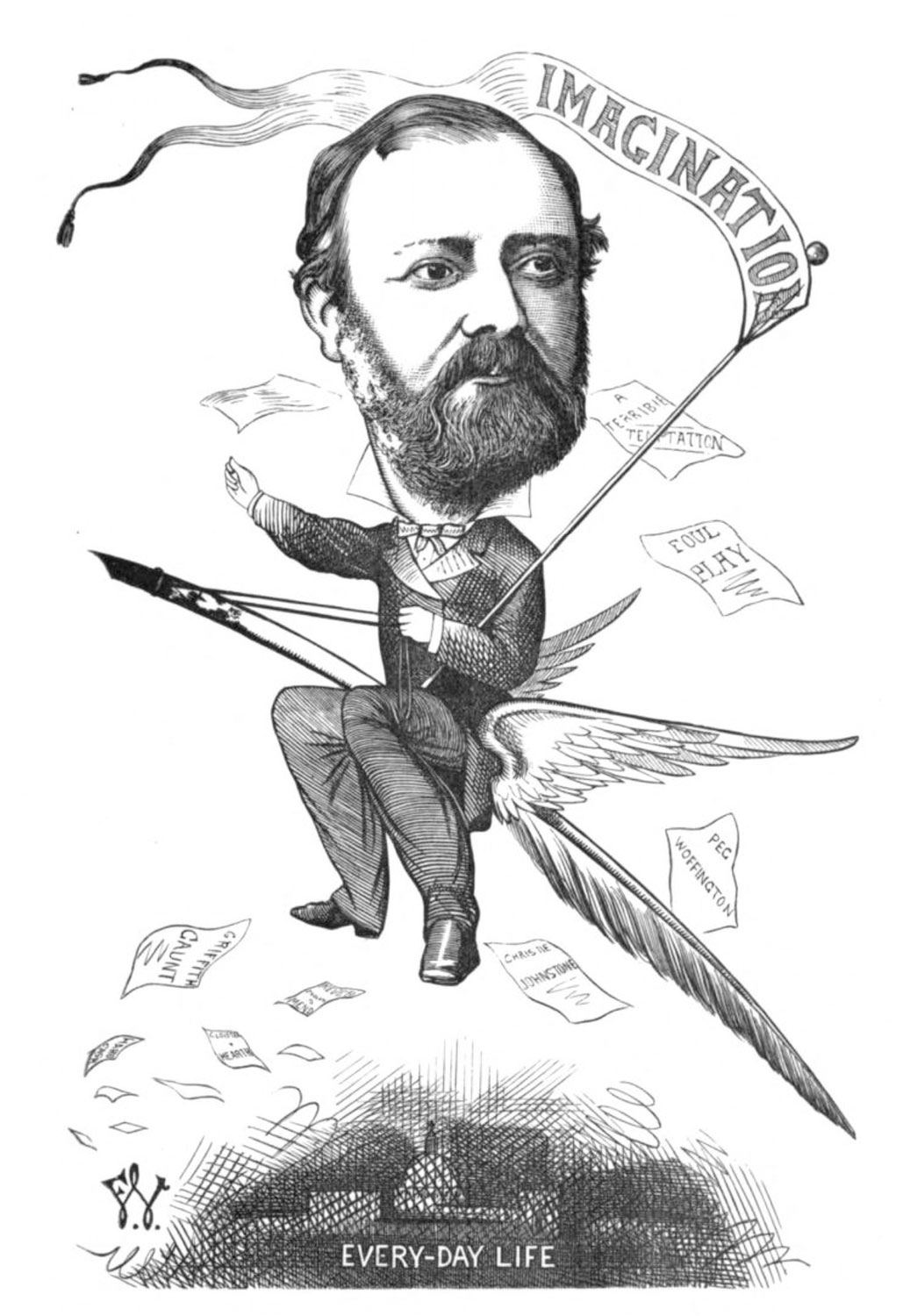terra incognita

Charles Reade, under the banner of imagination,
departs from everyday life to parts unknown.1
Charles Reade shows up in Jean Strouse’s biography of Alice James:
Her improving health allowed Alice to enjoy a greater range of intellectual life than before. She went to the theater […] and she was reading a great deal, particularly the novels of Charles Reade. She wrote to Fanny Morse that Hard Cash,2 a two-volume novel published in 1863, was ‘most certainly interesting although not one of Reade’s best’; she preferred The Cloister and the Hearth, as has posterity (ch. 8).
A quick look at the latter reveals an unhappy hybrid of George Eliot and James Branch Cabell; an important precursor perhaps.3 Time will tell…
- Caricature from Frederick Waddy’s Cartoon Portraits and Biographical Sketches of Men of the Day (1873); Millais flies a very small banner of genius, and Tennyson waves the flag of popularity beneath the friendly stars of poetic fancy. Henry James, according to Logan Pearsall Smith, ventured forth under the banner of loneliness. Make of that what you will. [↩]
- A title which should be a noir thriller but probably ain’t. [↩]
- Given that Middlemarch has a chapter entitled ‘The Cloister and the Hearth’ this is not actually unlikely: great shades of mute inglorious St Teresas! [↩]
